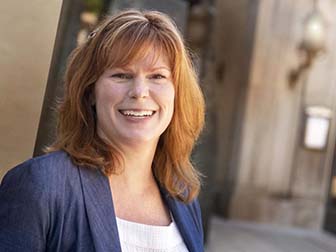UNIVERSITY PARK, Pa. — Energy literacy, as the U.S. Department of Energy defines it, is "an understanding of the nature and role of energy in the world ... accompanied by the ability to apply this understanding to ... solve problems." Furthermore, according to Jacqueline O’Connor, assistant professor of mechanical engineering at Penn State, energy literacy is crucial during an energy transition, which is the process of replacing fossil fuels with low- or no-carbon energy sources.
O’Connor recently collaborated with colleagues to edit a book titled “Renewable Fuels: Sources, Conversion, and Utilization” (Cambridge Press, December 2022). Through the book, O’Connor and her co-editors — Timothy Lieuwen, Regents' Professor, holder of the David S. Lewis, Jr. Chair and the executive director of the Strategic Energy Institute at Georgia Tech, and Bobby Noble, Electric Power Research Institute (EPRI) Gas Turbine Programs Manager and an American Society of Mechanical Engineers Fellow — aim to increase energy literacy and bridge the disconnect between those who make fuels and those who use them. The book features contributing authors from around the world, including some Penn State researchers.
“We wanted to put together the book in such a way that people from all different parts of the energy landscape could approach the book,” O’Connor said. “Additionally, the book can be a catalyst to continue the crucial discussion around fuel, machines and supply chain.”
Through her research in engine combustion and teaching in Penn State’s Department of Mechanical Engineering, O'Connor has pursued efforts to increase energy efficiency and reduce the climate impact of key technologies like aircraft engines and power generation gas turbines. In this pursuit, she said, she has noticed knowledge gaps in the energy supply chain that could stymie an efficient energy transition. The supply chain, in this case, primarily refers to fuel procurement, conversion and combustion as well as the infrastructure and equipment that support those efforts.
“I've always been motivated to study engine combustion because that's the source of the emissions problem,” said O’Connor, whose research has provided her the opportunity to work with a wide range of fuels. “As the world looks to decarbonize, we must think about alternative fuels for the electricity grid and other hard-to-decarbonize technologies that we will be using for many decades to come.”



